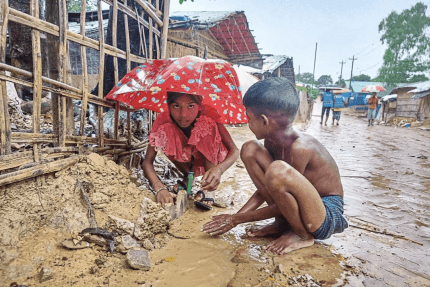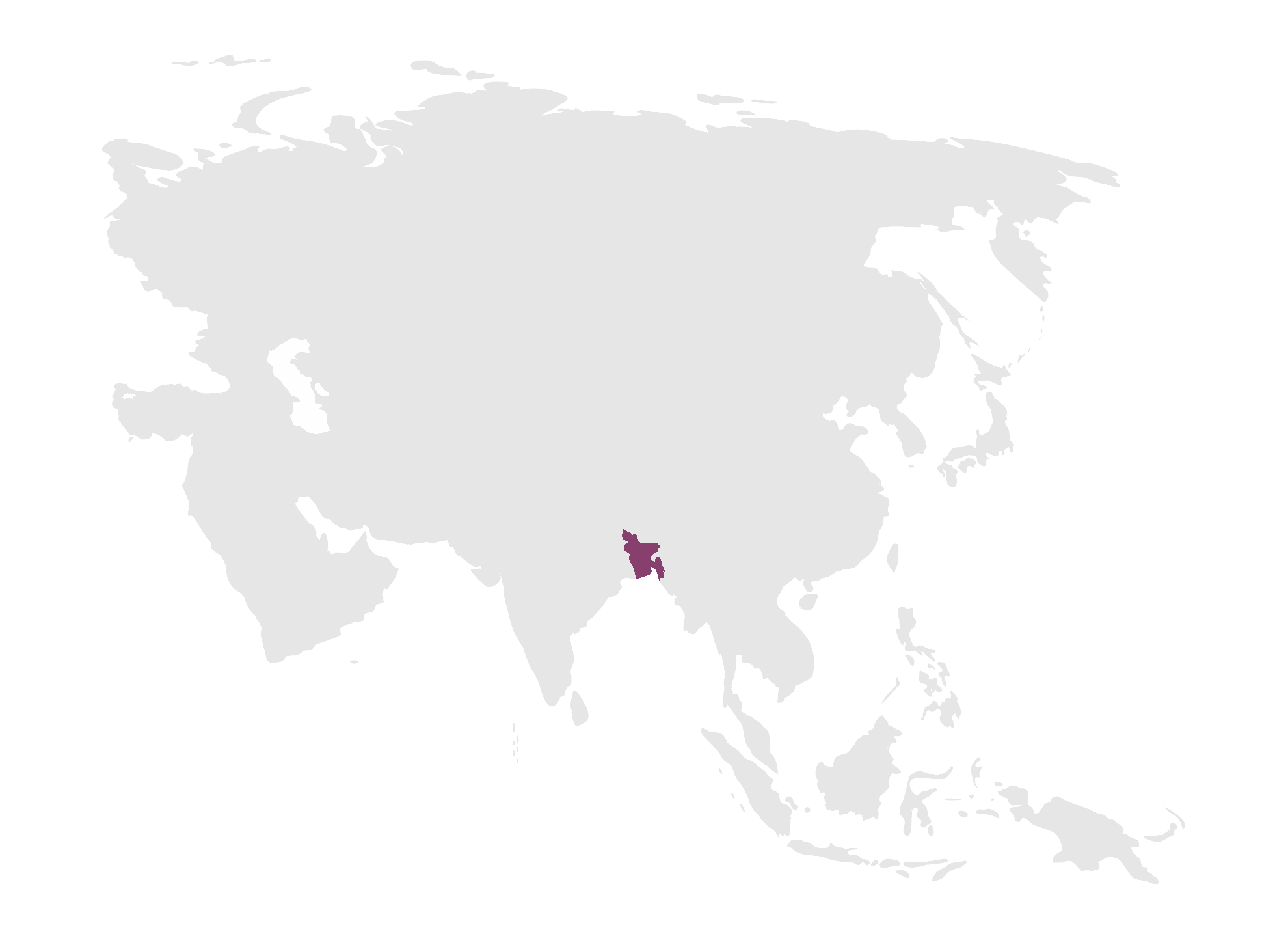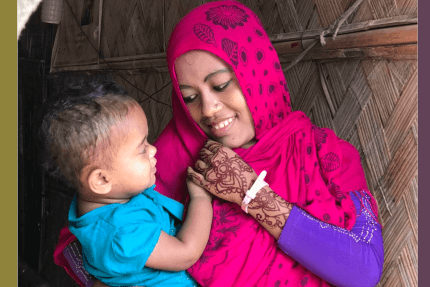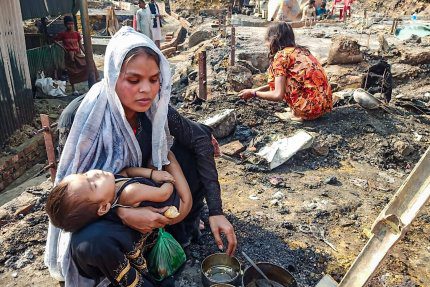“On August 30, 2017, the Burmese army entered our village from the north, accompanied by a group of civilians. They started burning houses and shooting the villagers for no reason. We fled south to a meander in the river. There were several hundred of us there. The soldiers finally caught up with us and shot everyone who did not manage to hide in the grass. My whole family was killed that day. I do not know how I managed to survive. I only remember isolated fragments of that day. I remember the soldier who hit me with the butt of his rifle, I remember waking up in a pool of blood, and everything around me was burning. I remember the body of my one-month-old son. I remember a room in some hut. The memory of the flames engulfing the ceiling wakes me to this day. By some miracle I managed to drag myself out of that hell.
I lay in the vegetable garden and waited for everything to end. Two women helped me to get away from the village. We hid in the mountains. After three days of taking cover, we met our neighbours from another village. It was then that we realised that the whole area was in flames, and that what had happened in our village on 30 August had been happening for several days in all the other villages inhabited by us, the Rohingya people. We moved towards the border with Bangladesh where we joined other refugees. Small groups of people, like tributaries, eventually merged with larger groups just before the border, already forming a crowd of thousands.”
Today marks exactly 4 years since the ethnic cleansing that the Burmese military carried out in North Rakhine province. According to a report by Doctors Without Borders, at least 7,600 people, including 730 children, were killed over the course of several days in August of 2017. Satellite images analysed by Human Right Watch show that 288 villages were completely destroyed in North Rakhine province. To this day, the area once inhabited by the Rohingya is off-limits to international observers. More than 730,000 people crossed the border into Bangladesh in a few days after August 25, 2017. Each of them has experienced hell. Roshida Begum, who is now in our care, is one of those people. Her home village of Tula Toli has ceased to exist.
Roshida was born in a country that does not recognise her as a citizen. After four years in the world’s largest refugee camp, the 29-year-old woman dreams of one thing. She wants someone to finally give her the right to live a normal life.
We do not understand a world in which there is no place for us all. We do not understand a world in which any human being can be illegal. We want to change the world with you one step at a time, showing individuals that they have friends in this world, that their lives are important, and that there is a place for everyone.
The Rohinga refugee camp in Bangladesh is one of the most difficult and challenging places in which we operate. It is only thanks to you, despite the increasing obstacles, that we can still be there and support people who have already experienced too many atrocities in their lives. We feed them and provide them with the basic equipment for their shelters. They have no holidays, and when it comes to helping them, neither do we!





